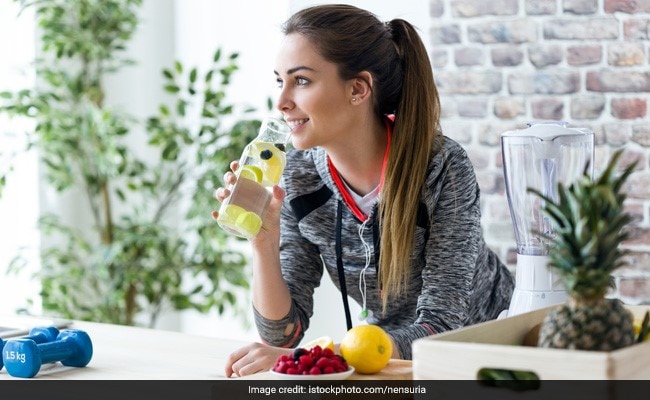How energetic we feel during the day can depend on multiple factors such as sleep quality, physical activity, stress levels, diet and so on. Coming to diet, there are several healthy practices you can follow to improve the energy you get from the food you eat. This does not mean that to get more energy, we start eating more food. Instead, the key lies in keeping our glucose (the main type of sugar in the blood) steady. In a recent Instagram post, French biochemist Jessie Inchauspe explains, "Glucose is your body's favourite source of energy. But, more glucose isn't better. If you give your body too much glucose (if you eat too many carbs and sugars), you don't get more energy. You get less of it."
"If you experience too many glucose spikes, your mitochondria become stressed. You feel chronically fatigued. It's difficult to intuitively know this because when we eat sugar, we feel a rush of dopamine (the pleasure molecule) that we confuse for energy. Keeping our glucose steady is so important to help unlock new energy from within," the expert adds.
Also Read: Is It Okay To Eat Sprouted Potatoes? Expert Highlights Safety Concerns To Consider
It is important to eat a balanced diet that includes a variety of unrefined carbohydrates, proteins, and fats, with an emphasis on vegetables, whole grains, and healthy oils, explains Harvard Health.

Photo Credit: iStock
Further, the expert has shared some diet-related tips to help you feel "much more energized":
1. Eat A Savoury Breakfast
Instead of a sweet breakfast like bread-jam or cereal, eat a savoury breakfast like yoghurt, eggs, nuts, beans, and avocado.
2. Eat Veggies First
"Add a plate of vegetables to the beginning of your meals," she writes. The fibre from the veggies will prevent sudden glucose spikes from your main meal.
3. Vinegar Dressing On Your Starter Veggies
"Before eating, have a tablespoon of vinegar (any kind) in a glass of water, or drizzled on your vegetable starter," the expert recommends. Vinegar has acetic acid which slows down the enzymes that convert food to glucose.
Also Read: 5 Dietary Changes You Should Incorporate Today For Your Family's Well-Being
4. Eat Whole Fruits
"Only have fruit whole, never juiced or dried," the expert shared. When we juice the fruit, it loses the fibre and you may experience a sudden glucose spike.
5. Eat Sweet Foods After Meal
Eat sweet foods at the end of a meal instead of in the morning or on their own as a snack. Eating sugar on an empty stomach can give you a big glucose spike.
Disclaimer: This content including advice provides generic information only. It is in no way a substitute for qualified medical opinion. Always consult a specialist or your doctor for more information. NDTV does not claim responsibility for this information.
from NDTV News Search Records Found 1000 https://ift.tt/pMhVglK




